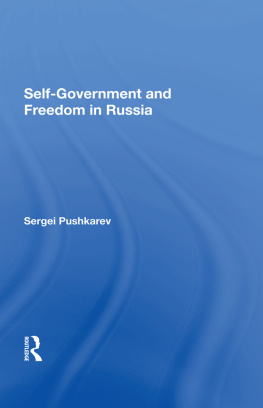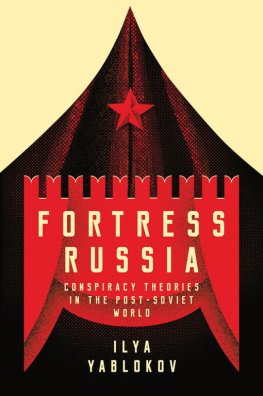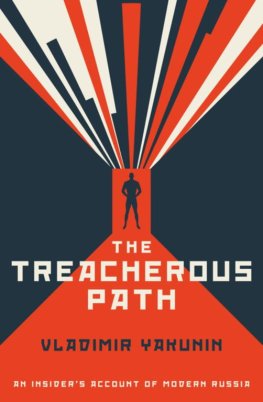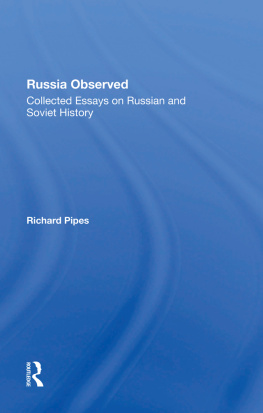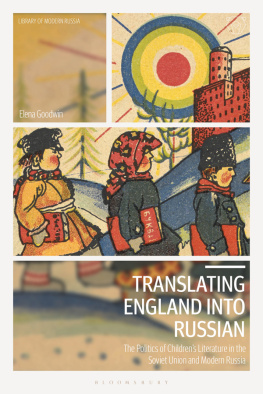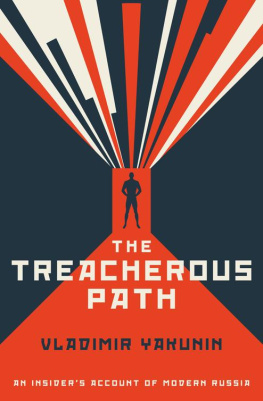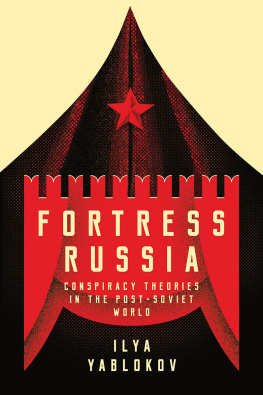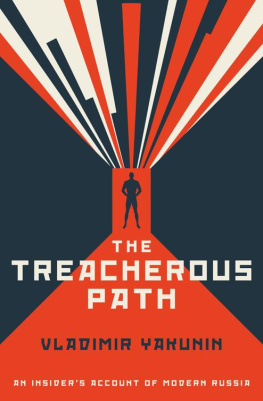CHRISTIANITY AND GOVERNMENT IN RUSSIA AND THE SOVIET UNION
CHRISTIANITY AND GOVERNMENT IN RUSSIA AND THE SOVIET UNION
REFLECTIONS ON THE MILLENNIUM
SergeiPushkarev,VladimirRusak,
andGlebYakunin

First published 1989 by Westview Press, Inc.
Published 2021 by Routledge
605 Third Avenue, New York, NY 10017
2 Park Square, Milton Park, Abingdon, Oxon OX14 4RN
Routledge is an imprint of the Taylor & Francis Group, an informa business
Copyright 1989 by Taylor & Francis
All rights reserved. No part of this book may be reprinted or reproduced or utilised in any form or by any electronic, mechanical, or other means, now known or hereafter invented, including photocopying and recording, or in any information storage or retrieval system, without permission in writing from the publishers.
Notice:
Product or corporate names may be trademarks or registered trademarks, and are used only for identification and explanation without intent to infringe.
Library of Congress Cataloging-in-Publication Data
Christianity and government in Russia and the Soviet Union:
reflections on the millennium
p. cm.(CCRS series on change in contemporary Soviet society)
Includes index.
Translated from the Russian.
Contents: The role of the Orthodox Church in Russian history / Sergei PushkarevWitness for the prosecution / Vladimir Rusak The Orthodox Church and prospects for the future / Gleb Yakunin.
ISBN 0-8133-7524-X
1. Russkaia pravoslavnaia tserkov. 2. Orthodox Eastern Church Soviet Union. 3. Church and stateSoviet Union. 4. Church and stateOrthodox Eastern Church. 5. Soviet UnionChurch history.
I. Pushkarev, S. G. (Sergei Germanovich), b. 1888. Rol pravoslavnoi tserkvi v istorii Rossii. English. 1987.
II. Yakunin, Gleb. O sovremennom polozhenii Russkoi pravoslavnoi tserkvi i perspektivakh religioznogo vozrozhdeniia. English. 1987. III. Series.
BX485.C48 1989
281.9'47dc19 87-31594
CIP
ISBN13: 978-0-3670-1441-4 (hbk)
ISBN13: 978-0-3671-6428-7 (pbk)
DOI: 10.4324/9780429044274
Contents
Nicolai N. Petro
Sergei Pushkarev
1. The Ancient Period: Tenth Through Thirteenth Centuries
2. From the Tatar Conquest to the End of the Seventeenth Century
3. The Synodic Period: From Peter the Great to the Revolution
PART TWO
Witness for the Prosecution
Father Vladimir Stepanov (Rusak)
1. The Decree on Separation of Church and State
2. Along the Bloody Road: The Church's Epic
3. The Churches: Some Figures
4. The End Is Not Yet in Sight
PART THREE
The Orthodox Church and Prospects for the Future
Father Gleb Yakunin
1. The Present State of the Russian Orthodox Church and the Prospects for Religious Revival in Russia
2. An Open Letter to General Secretary Mikhail Gorbachev, May 23, 1987
3. An Open Letter to General Secretary Mikhail Gorbachev and the Supreme Soviet, August 12, 1987
- 1. The Ancient Period: Tenth Through Thirteenth Centuries
- 2. From the Tatar Conquest to the End of the Seventeenth Century
- 3. The Synodic Period: From Peter the Great to the Revolution
- PART TWO Witness for the Prosecution
- 1. The Decree on Separation of Church and State
- 2. Along the Bloody Road: The Church's Epic
- 3. The Churches: Some Figures
- 4. The End Is Not Yet in Sight
- PART THREE The Orthodox Church and Prospects for the Future
- 1. The Present State of the Russian Orthodox Church and the Prospects for Religious Revival in Russia
- 2. An Open Letter to General Secretary Mikhail Gorbachev, May 23, 1987
- 3. An Open Letter to General Secretary Mikhail Gorbachev and the Supreme Soviet, August 12, 1987
Guide
Acknowledgments
I would like to thank the people who have helped with the translating and editing of the works contained in this volume. Anne Mortensen translated Pushkarev's entire essay and the main body of Father Yakunin's portion of the book (Part Three, Chapter 1), and Christina Sever, with the capable and greatly appreciated assistance of Andrea Medacco and Barbara Poston, translated Part Two, by Father Rusak, and Father Yakunin's two letters. The entire volume was also edited by Christina Sever. And as always, Susan McEachern and the staff at Westview Press were most helpful and patient in the preparation of this volume.
Nicolai N. Petro
Series Editor
Introduction
In 1988, Christians throughout the world commemorated the millennium of the baptism of Russia by St. Vladimir. Many scholars have pointed out the central role that Christianity has played in the formation of Russian culture and the Russian nation. Through the early period of the consolidation of Russian lands, then in the struggle against the Mongols, and during subsequent invasions through the centuries, the Orthodox Church served to inspire and to maintain the national identity of the Russian people.
It is scarcely surprising, therefore, to find that the Church continues to be considered an important spiritual force in contemporary Soviet society. Its role became especially visible in 1988 when, in honor of the millennium, high-ranking clergy were featured prominently on television, radio and the print media for the first time in decades.
Moreover, many church leaders see themselves not merely as beneficiaries of glasnost', but as active participants in today's process of social change. According to Archbishop Kirill of Smolensk, the particular value of perestroika, as opposed to previous campaigns for increased productivity, lies in its orientation toward a scale of moral values:
Perestroika is first of all a rejection of untruth in our history and present day. That is why the problem of re-thinking our history is so vital. Specifically, it is essential that words said today should correspond to actions. Such is the fundamental moral principle of perestroika. If we succeed in realizing this principle completely, then I am convinced that we will realize this perestroika in the economic and political spheres.
. Interview with Kirill, Archbishop of Smolensk, "Utverzhdaia prioritet dukhovnogo..." [Reinforcing the priority of the spiritual...], Teatr [Theater], No. 6, June, 1988, p. 25.
But the greater openness and tolerance toward the Church today lies in sharp contrast to the attempted destruction of the Church during the early years of the Bolshevik regime. The greater tolerance and willingness to establish a dialogue with believers thus also serves to highlight the long and tortuous path already travelled by the Church and the long struggle it has yet to face before believers and non-believers share truly equal status.
This book, the second in the CCRS series, "Change in Contemporary Soviet Society," is devoted to examining the historical path of Church-State relations in Russia and the Soviet Union. In it three authors reflect on different periods of this troubled relationship.


